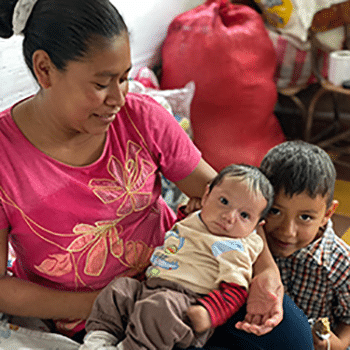
Honduras
About Honduras

Honduras is one of the poorest countries in Central America: nearly two-thirds of its 9 million people live in poverty. Many families depend on agriculture to make a living, which makes the population especially vulnerable to the growing impacts of climate change.
In recent years, tens of thousands of Hondurans have fled the country in search of safety and opportunity in the U.S. Those who have remained face widespread poverty, violence, and insecurity, and a myriad of grave health concerns — particularly women and children.


The Challenges
Risk of disaster
Climate change has exacerbated the frequency and intensity of natural disasters in Honduras, as evidenced in Hurricanes Eta and Iota — two massive Category 4 storms that hit the region within a span of just two weeks in November 2020. The hurricanes displaced hundreds of thousands of Hondurans and left more than 2 million people with limited or no access to health services and at increased risk of contracting COVID-19. More than a month after the storms hit, several thousand people remained without access to clean water and health services.
Over time, it is certain Honduras and the greater Central American and Caribbean region will be subjected to bigger and more frequent tropical storms like these.
The impact of climate change threatens the health of Honduras’ most vulnerable people: pregnant women, lactating mothers, newborns, and children. As disasters become more common, so do the risks of infectious diseases like COVID-19, malaria, and dengue; cardiac and respiratory illnesses; and mental health issues, in addition to the already devastating loss of homes, livelihoods, and lives.
Poor sanitation
Many families do not have access to clean drinking water or basic sanitation services, particularly in remote rural areas, which increases the risk of vector- and waterborne diseases.
In 2017, 30% of the population in rural areas did not have access to safe drinking water. An estimated 24% did not have access to basic sanitation services.
Households that do have access to clean water cannot count on it year-round. Access to safe water is often disrupted when natural disasters strike, putting the health and well-being of all communities at risk.
Food security and malnutrition
Climate change also threatens to aggravate food security and malnutrition. Malnutrition is a leading cause of death among children, and an estimated 1.65 million Hondurans already go hungry each year. This number will most likely increase as food supply is impacted by climate change.
Poor maternal and child health
Women and children bear the brunt of the health challenges in Honduras.
Women and girls face an extremely high risk of sexual and gender-based violence, and most cases go unpunished.
GBV is the second-leading cause of death for women of reproductive age. Honduras has the second-highest adolescent birth rate in Latin America and one of the highest maternal mortality rates in the region. A woman dies from pregnancy or childbirth-related complications nearly every day and a half.

Bringing HOPE to Honduras
Our history in Honduras
Project HOPE has worked in Honduras since 1984. Over the years, our programs have addressed a range of areas, including maternal and child health; vaccination and education for pneumococcal diseases; treatment and care for HIV/AIDS; women’s rights and economic empowerment; and health worker training on diabetes.
Today we are working to build the country’s resilience against the impact of natural disasters and the risk of infectious diseases, while continuing to improve and protect the health of its most marginalized and vulnerable populations.
Responding to disaster
Project HOPE stands ready to respond in times of disaster with critical medical relief and lifesaving medicine and supplies. We also provide long-term support to ensure communities are better prepared to respond to future storms.
In October 1998, Project HOPE responded when Honduras was hit by Hurricane Mitch, the second-deadliest Atlantic hurricane on record.
Learn more about our response to disasters and health crisis
In November 2020, Project HOPE mobilized lifesaving relief and personal protective equipment to protect survivors and local health workers recovering from Hurricane Eta and Hurricane Iota.
At the request of the Honduran government and Pan American Health Organization/World Health Organization, Project HOPE deployed an Emergency Medical Team in partnership with the Spanish INGO SAMU, primarily to remote villages in the Santa Barbara region.
In partnership with local NGOs, ADASBA, and CASM, Project HOPE conducted water, sanitation, and hygiene activities in the Santa Barbara department. Community hygiene promoters provided water purification training and distributed chlorine, buckets, and training materials to improve access to clean water. Hygiene promoters also trained communities on mask making and usage to reduce the spread of COVID-19.
As the response transitioned to recovery efforts, Project HOPE provided key emergency health training to frontline health workers focused on mental health resilience and COVID-19 treatment.
Improving maternal and child health
From the 1980s to early 2000s, Project HOPE worked closely with the Ministry of Health to reduce child and maternal morbidity and mortality rates in Honduras.
Through various community education activities, we improved the nutrition and health of vulnerable families living in urban areas of the capital city of Tegucigalpa. We promoted health messages for each intervention: nutrition/food security, pneumonia case management, maternal health, control of diarrhea disease, HIV/AIDS, and family planning.
We also trained health professionals in child and maternal care, and facilitated a Maternal Child Health Nursing education program for nurses working in health clinics.
Protecting women’s health and well-being
Through small loans, health education, and peer support, Project HOPE has empowered women to claim their economic, health, and social rights and live productive lives free from domestic violence.
Poverty is one of the greater barriers to health and well-being for women in Honduras. To promote good health and reduce vulnerability, we have provided impoverished women with small loans through Village Health Banks and health education classes on topics ranging from cervical cancer and preventative health practices to domestic violence and human rights. Today this work is continued through a local NGO formed in 2015.
Protecting communities from COVID-19
Project HOPE is supporting the Ministry of Health, frontline health workers, and communities to better detect, contain, and respond to the ongoing threat of COVID-19.
With support from partners, we have delivered PPE including surgical and KN95 masks, gowns, and coveralls for health workers, as well as virtual training in partnership with Brown University. We also provided training on treatment and mental health resilience in the wake of Hurricanes Eta and Iota.
Learn more about Project HOPE’s ongoing response to COVID-19

Our Impact
Since 1984, our work has impacted the lives of thousands of people across Honduras.
In response to Hurricanes Eta and Iota, Project HOPE delivered 250,000 surgical and KN95 masks to local partners and the Honduran government to distribute in communities and health facilities. Our Emergency Medical Team has seen more than 1,000 patients in partnership with SAMU, and we have reached 3,000 families with clean drinking water.
In response to COVID-19, Project HOPE has worked with partners to empower hundreds of health workers with PPE and training needed to save lives.
Project HOPE’s Village Health Bank Program continues to transform the lives of impoverished women in Honduras. Between 1992 and 2015, over $24 million in micro-loans were extended to more than 27,000 women. Project HOPE also provided over 18,000 health education sessions to program members, which led to significant improvements in health, both through increased awareness and important behavioral and lifestyle changes.
Project HOPE in Honduras
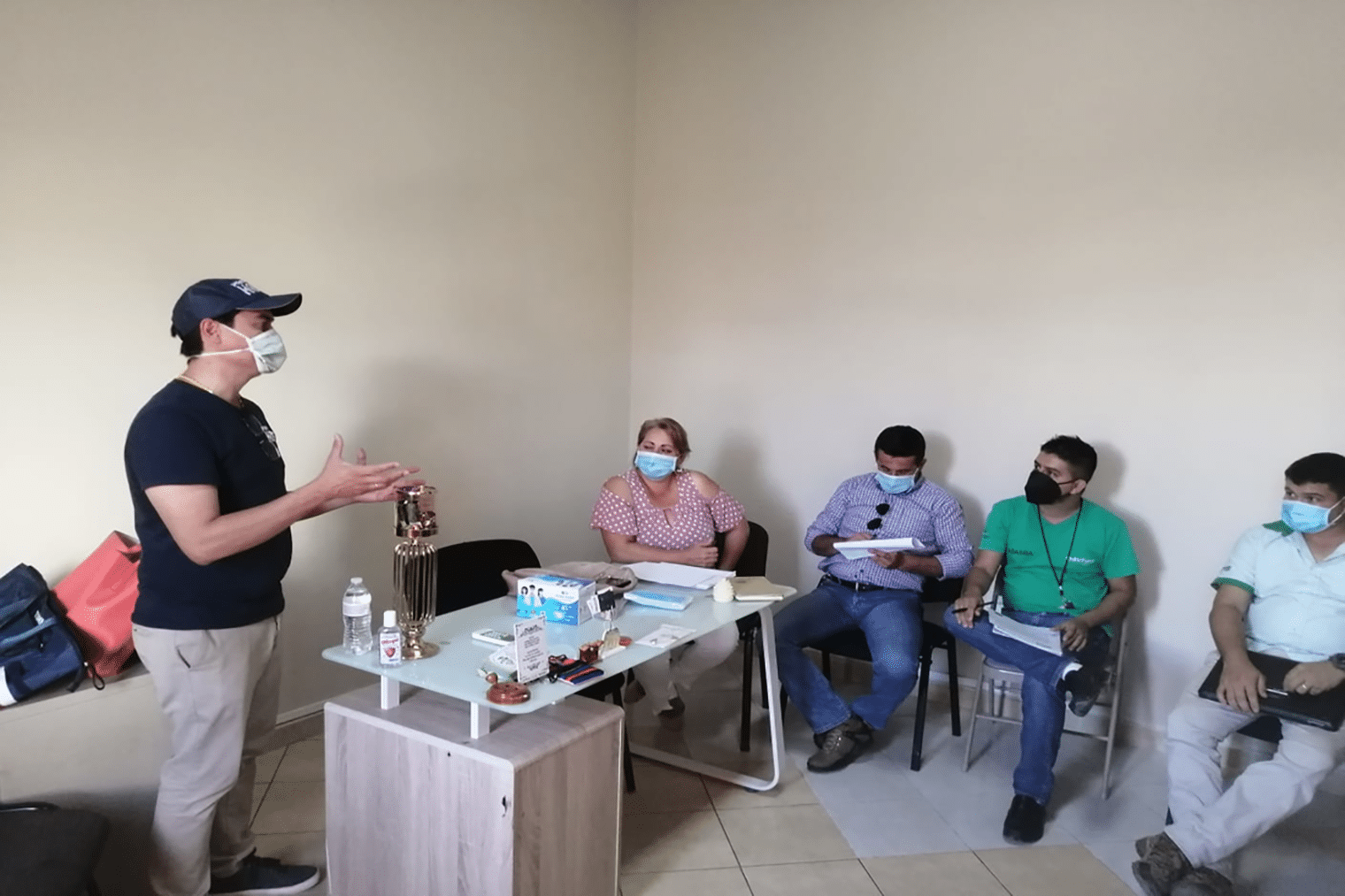 View Caption
View Caption
WhatsApp Image 2021-01-07 at 7.46.04 PM
Coordination meeting wtih ADASBA for bucket and chlorine distribution.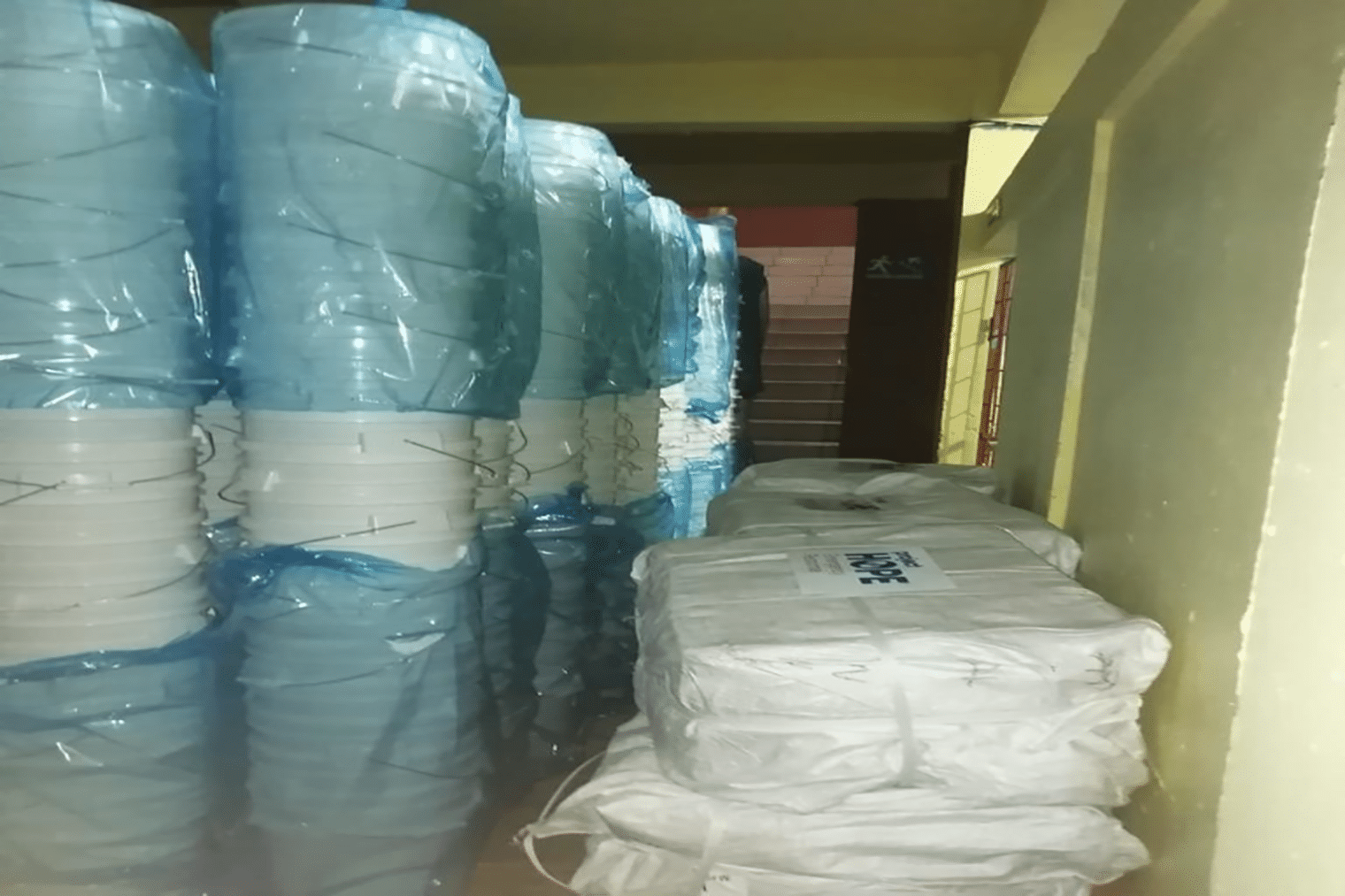 View Caption
View Caption
WhatsApp Image 2021-01-05 at 8.06.02 PM (2)
PH donates 1,500 filters to ADASBA that will be delivered to the same number of families to receive support to consume clean water affected by the Iota and Eta hurricanes in the institutional coverage area.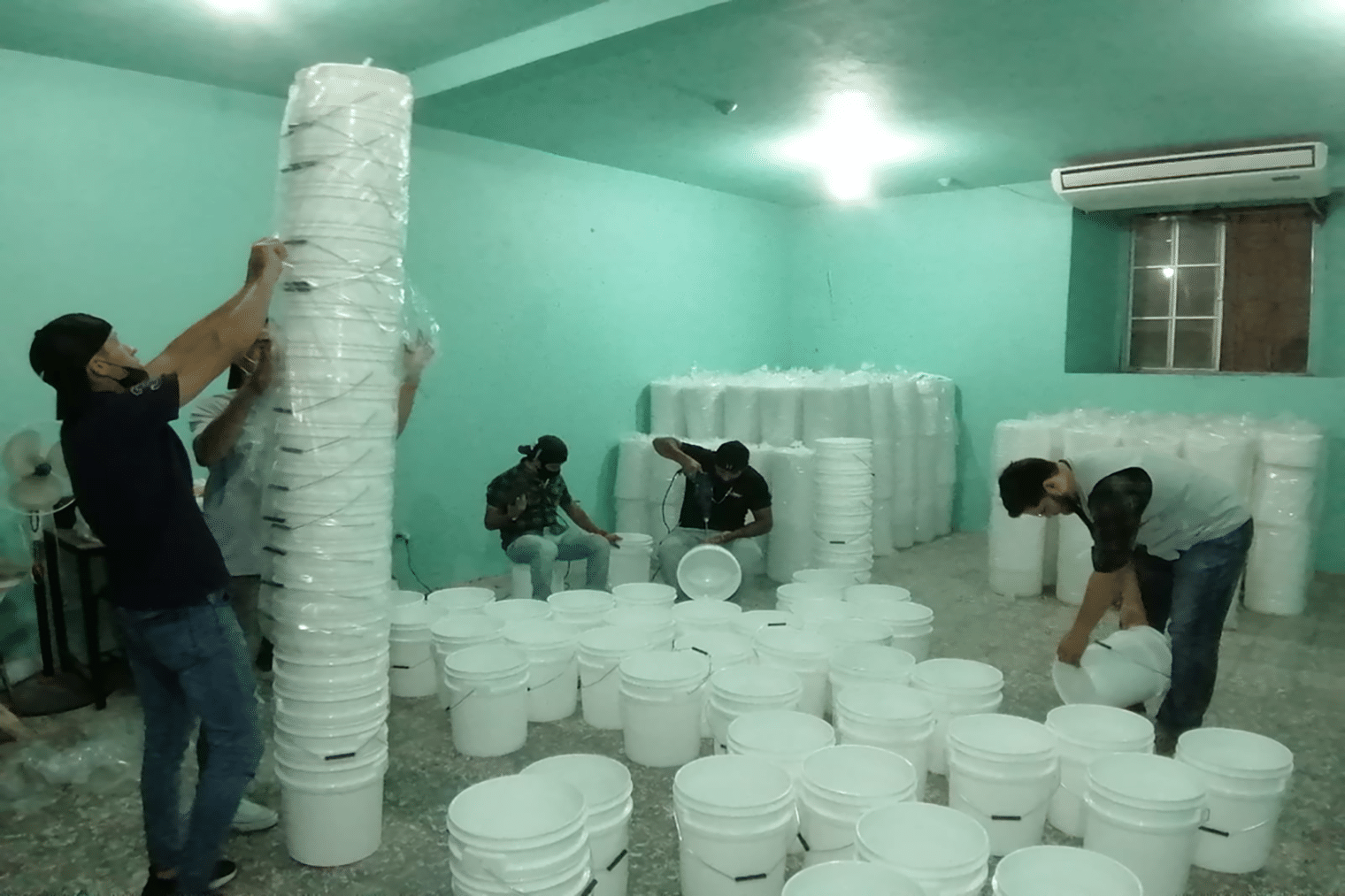 View Caption
View Caption
WhatsApp Image 2021-01-05 at 8.04.18 PM
Workers unloading buckets in Honduras. They will work late night drilling the buckets, then they will continue and will train CASM and ADASBA to put the faucets on for implementation.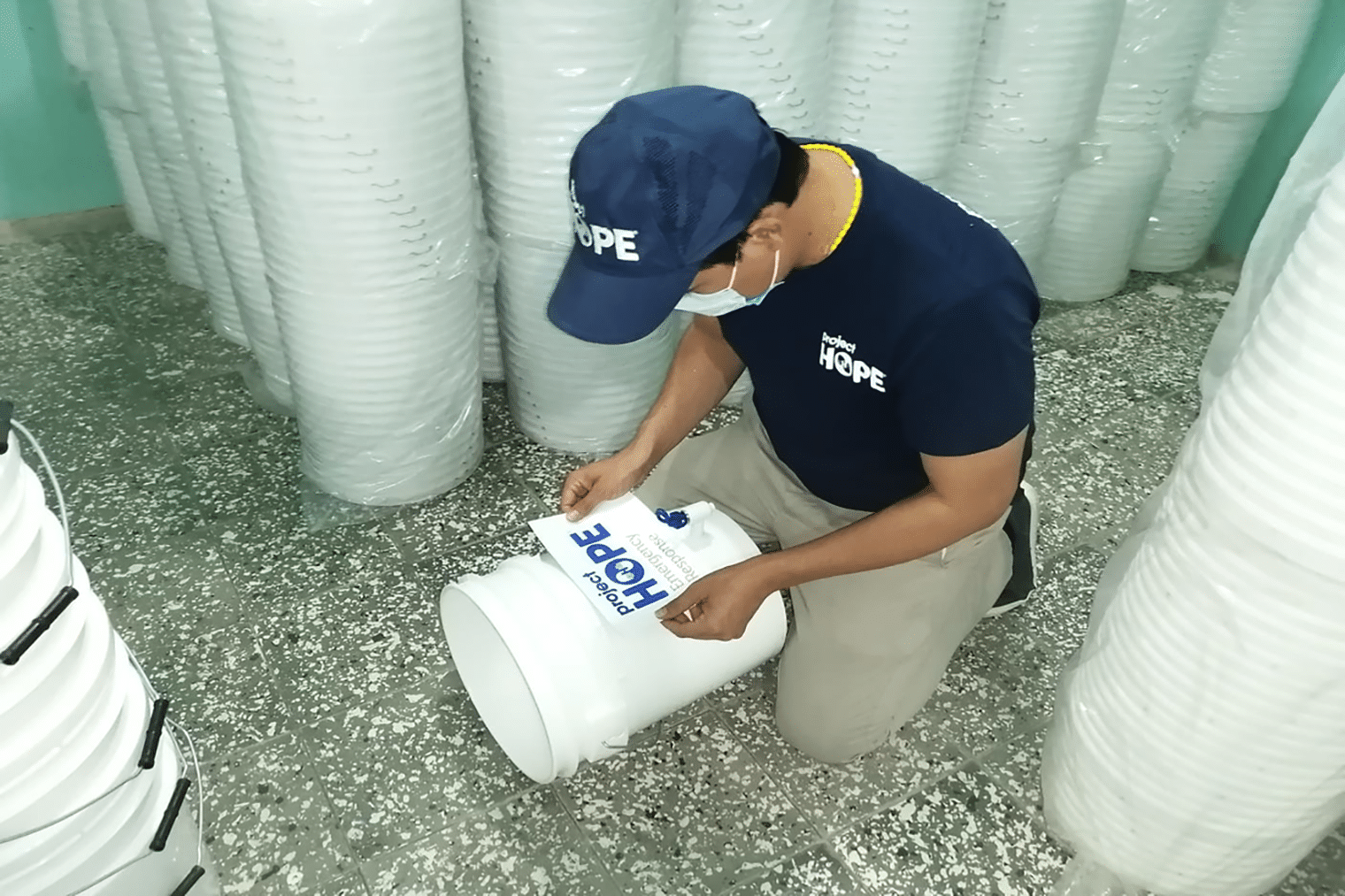 View Caption
View Caption
WhatsApp Image 2021-01-05 at 8.04.18 PM (5)
Workers unloading buckets in Honduras. They will work late night drilling the buckets, then they will continue and will train CASM and ADASBA to put the faucets on for implementation.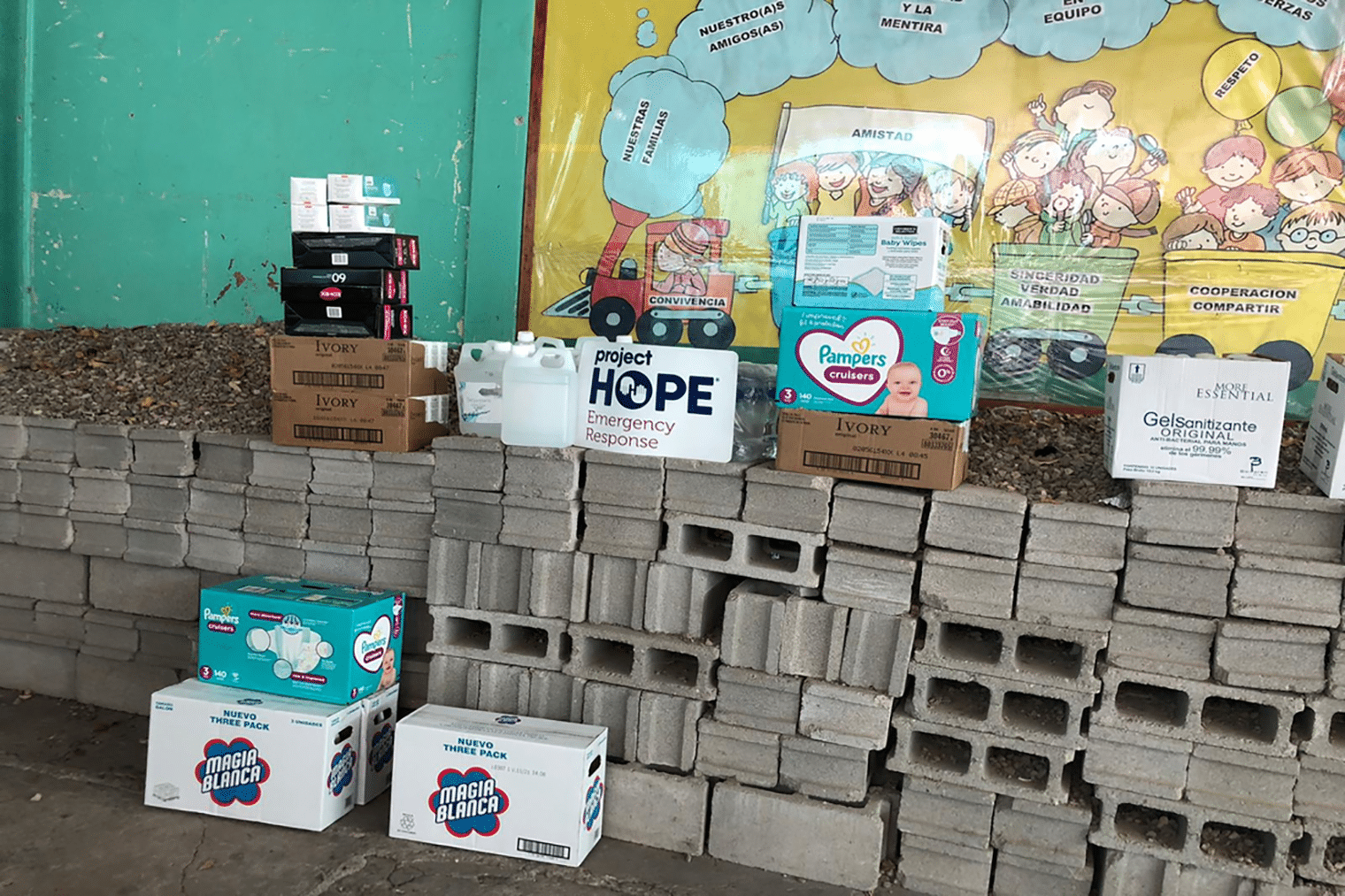 View Caption
View Caption
WhatsApp Image 2020-11-12 at 13.15.44
A shelter Colonia Sogastume in the Escuela Maximiliano Sogastume. where 9 families, 23 individuals are hosted in the aftermath of Hurricane Eta and goods were donated to help support them.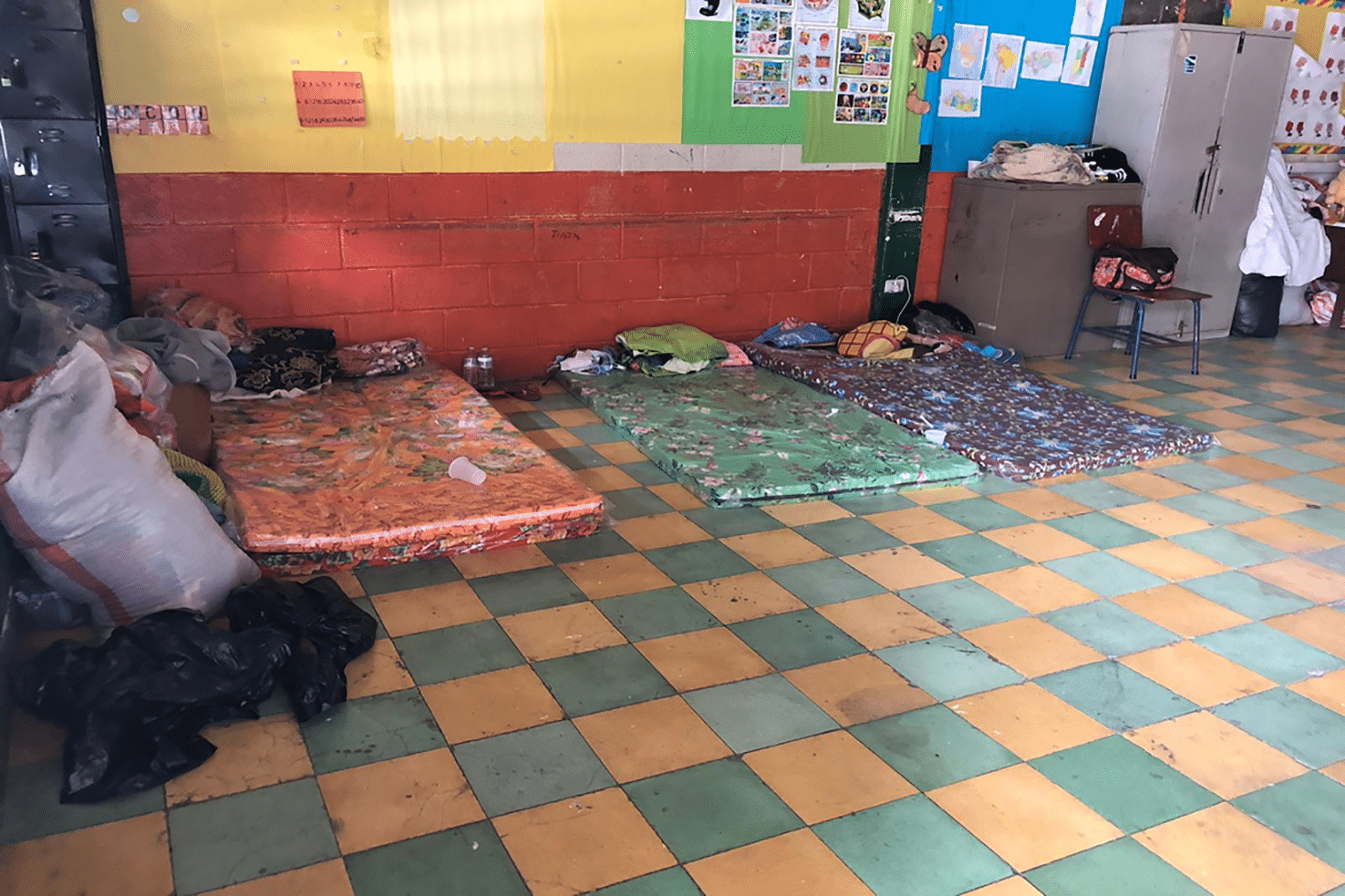 View Caption
View Caption
WhatsApp Image 2020-11-12 at 13.14.07
Project HOPE staff visit to Shelter Colonia Sogastume in the Escuela Maximiliano Sogastume, where 9 families, 23 individuals are hosted in the aftermath of Hurricane Eta.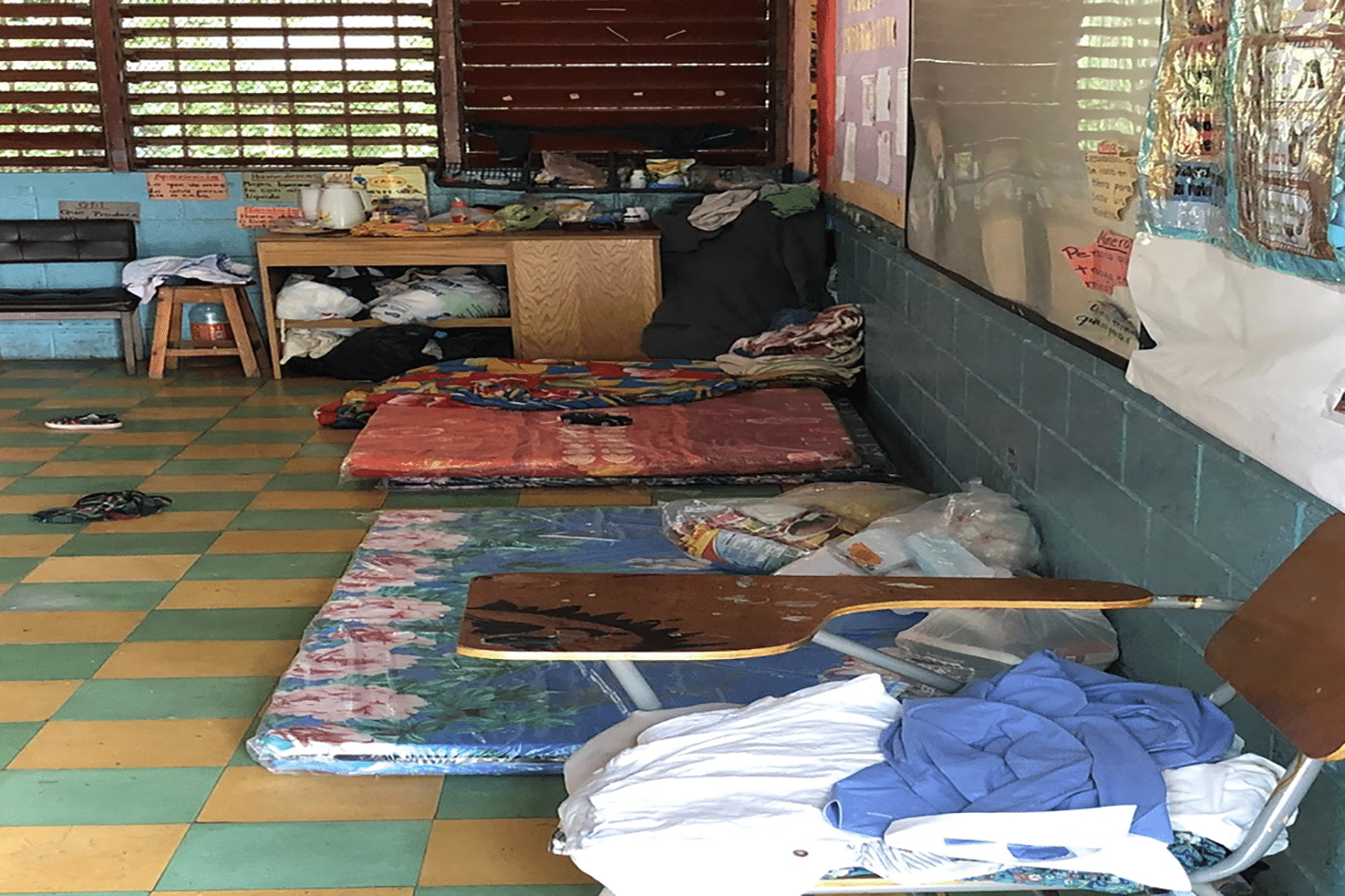 View Caption
View Caption
WhatsApp Image 2020-11-12 at 13.13.36
Project HOPE staff visit to Shelter Colonia Sogastume in the Escuela Maximiliano Sogastume, where 9 families, 23 individuals are hosted in the aftermath of Hurricane Eta.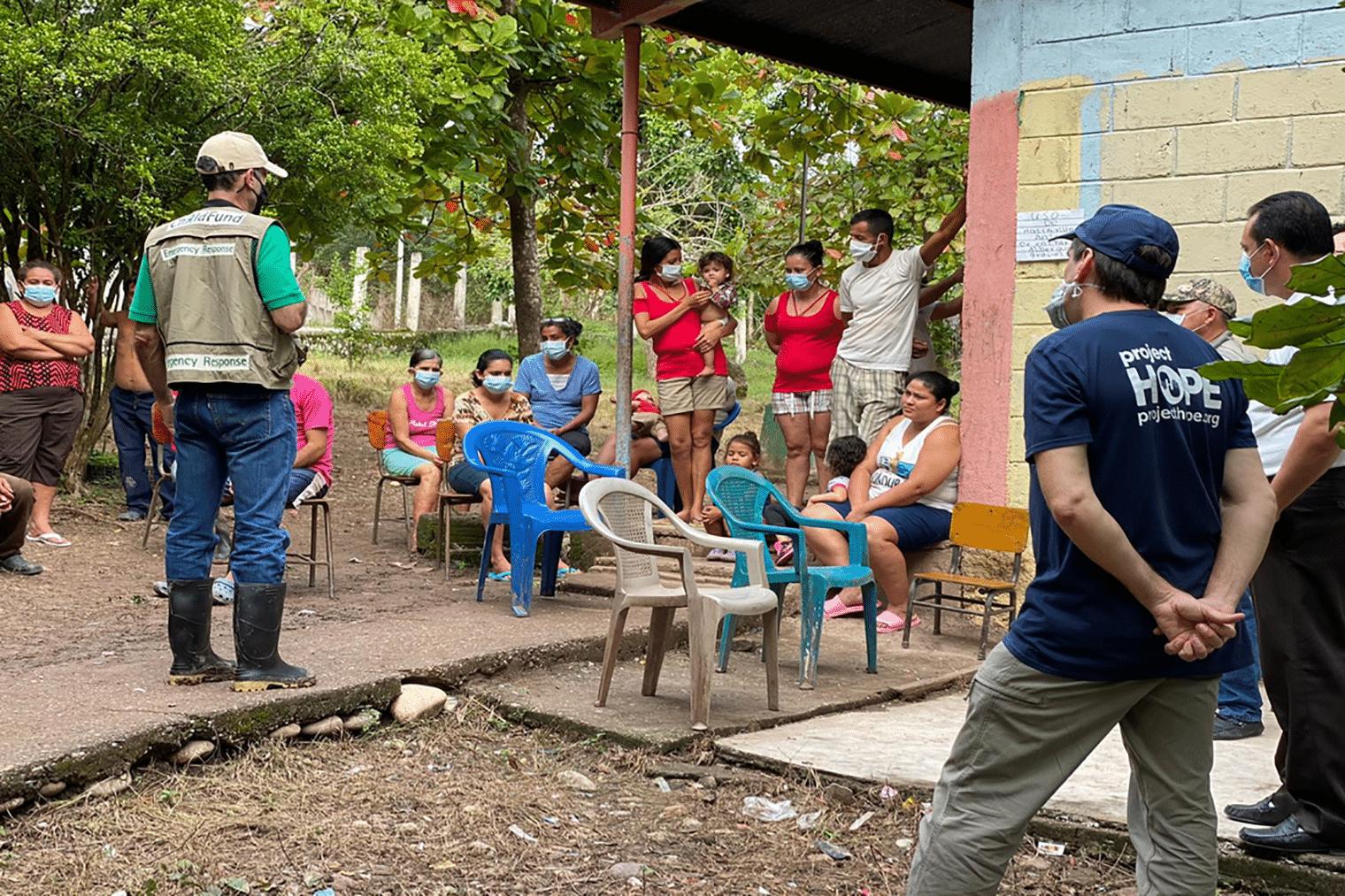 View Caption
View Caption
HurricaneIota_2020-12-02 at 4.53.39 PM
Project HOPE assesses needs following Hurricane Iota in Honduras.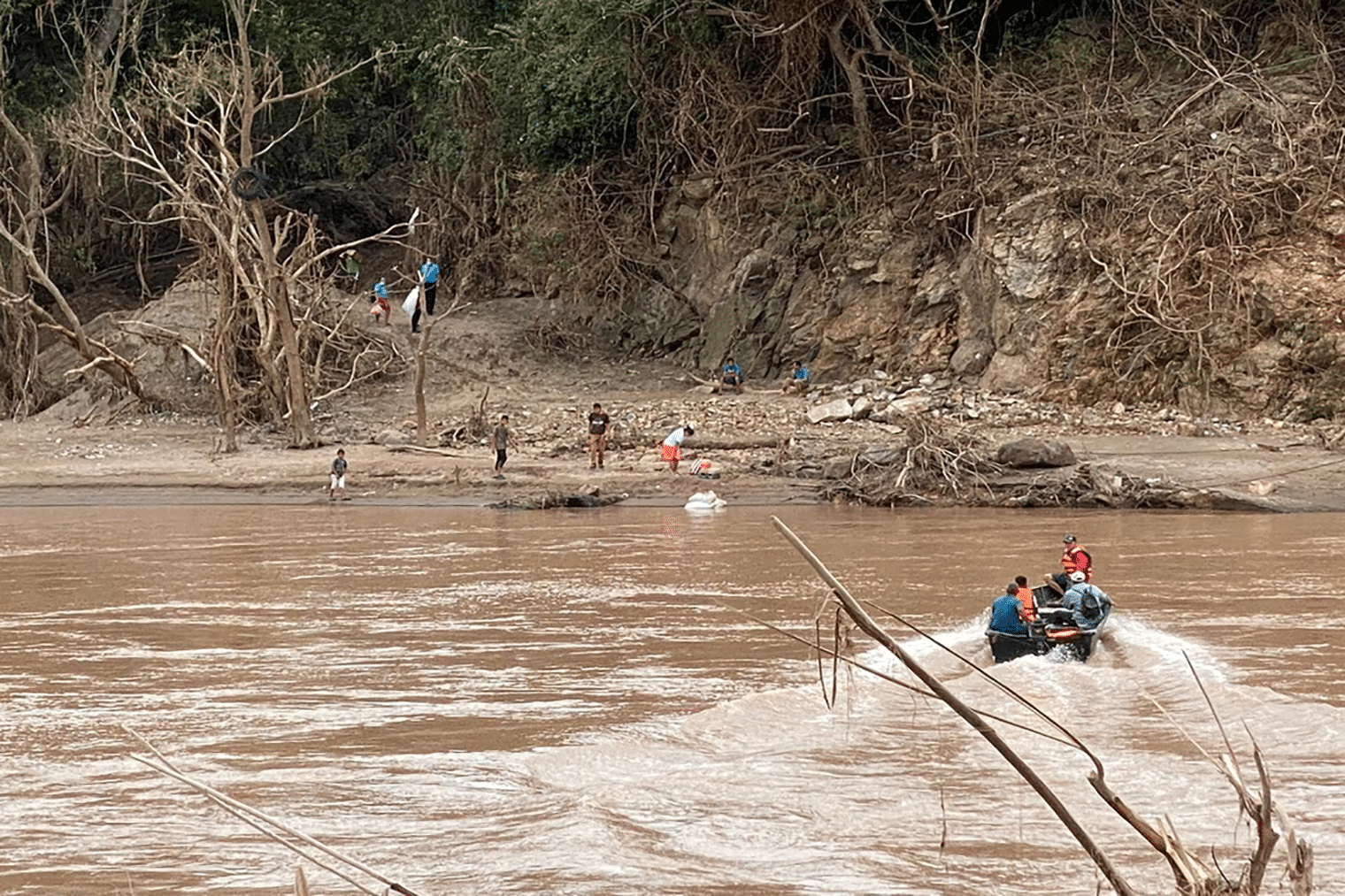 View Caption
View Caption
HurricaneIota_2020-12-02 at 4.53.37 PM
Project HOPE assesses needs following Hurricane Iota in Honduras.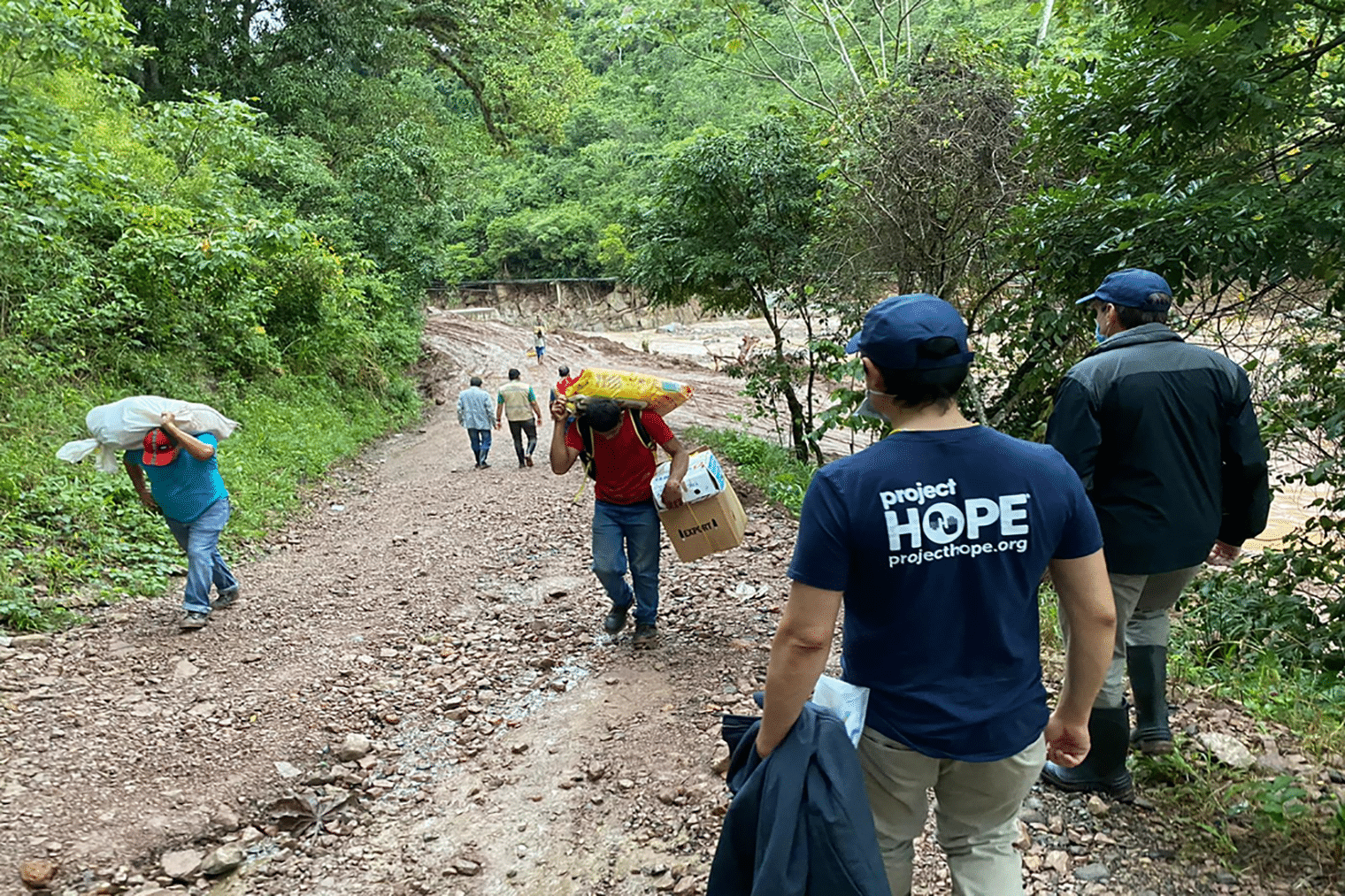 View Caption
View Caption
HurricaneIota_2020-12-01 at 8.59.32 PM
Project HOPE assesses needs following Hurricane Iota in Honduras.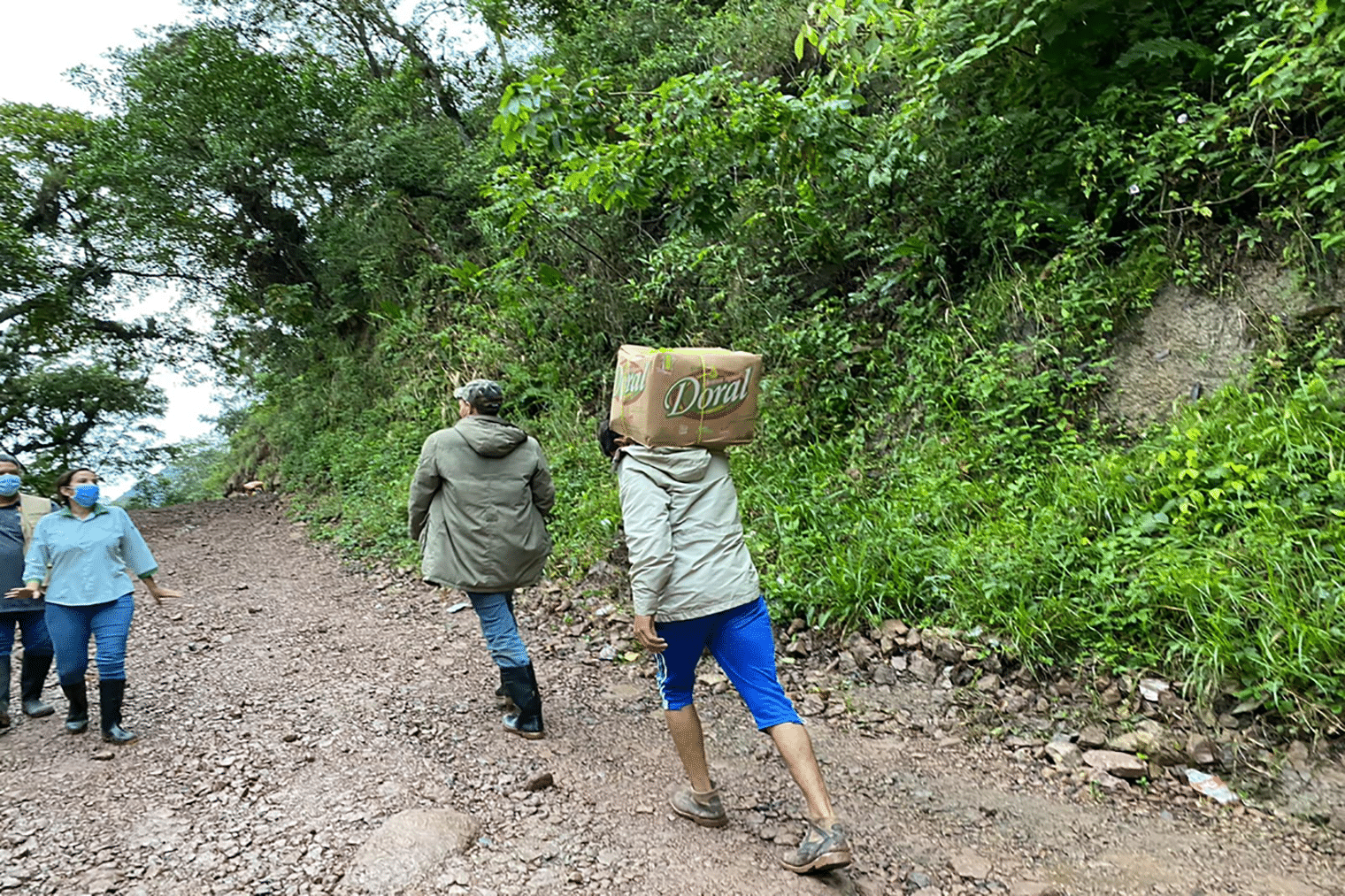 View Caption
View Caption
HurricaneIota_2020-12-01 at 8.59.32 PM (1)
Project HOPE assesses needs following Hurricane Iota in Honduras.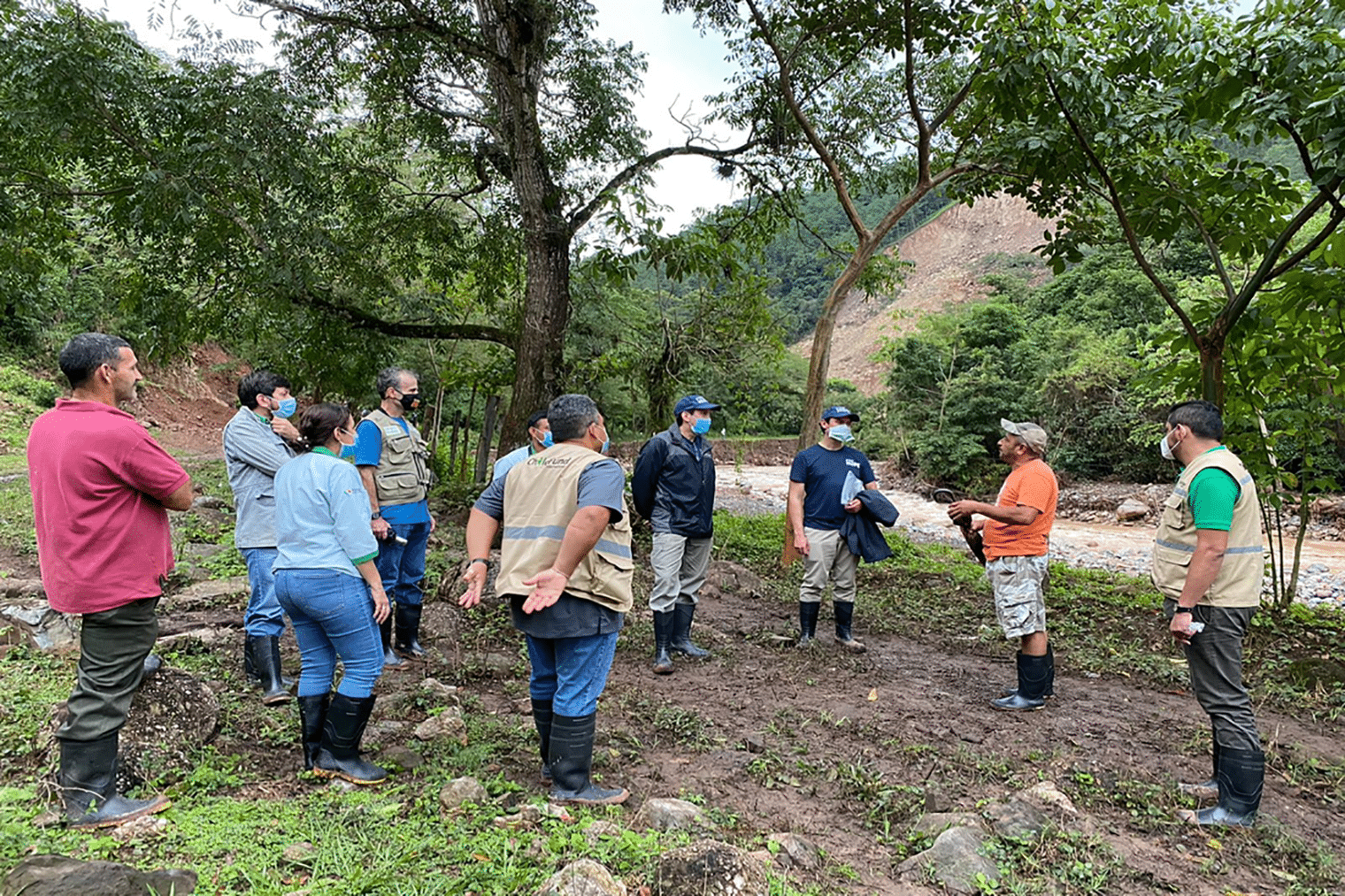 View Caption
View Caption
HurricaneIota_2020-12-01 at 8.59.29 PM (1)
Project HOPE assesses needs following Hurricane Iota in Honduras.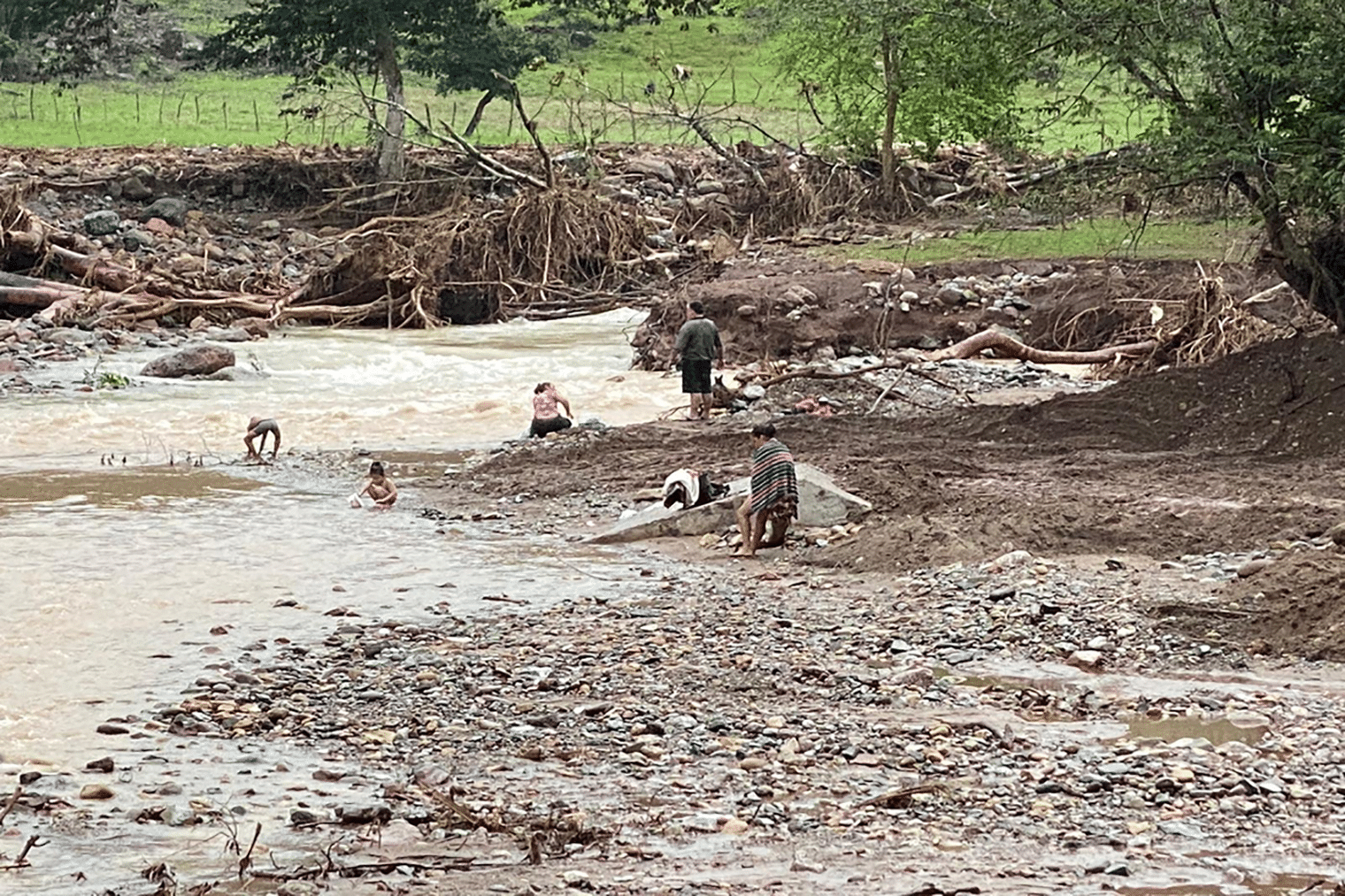 View Caption
View Caption
HurricaneIota_2020-12-01 at 8.59.24 PM
Project HOPE assesses needs following Hurricane Iota in Honduras.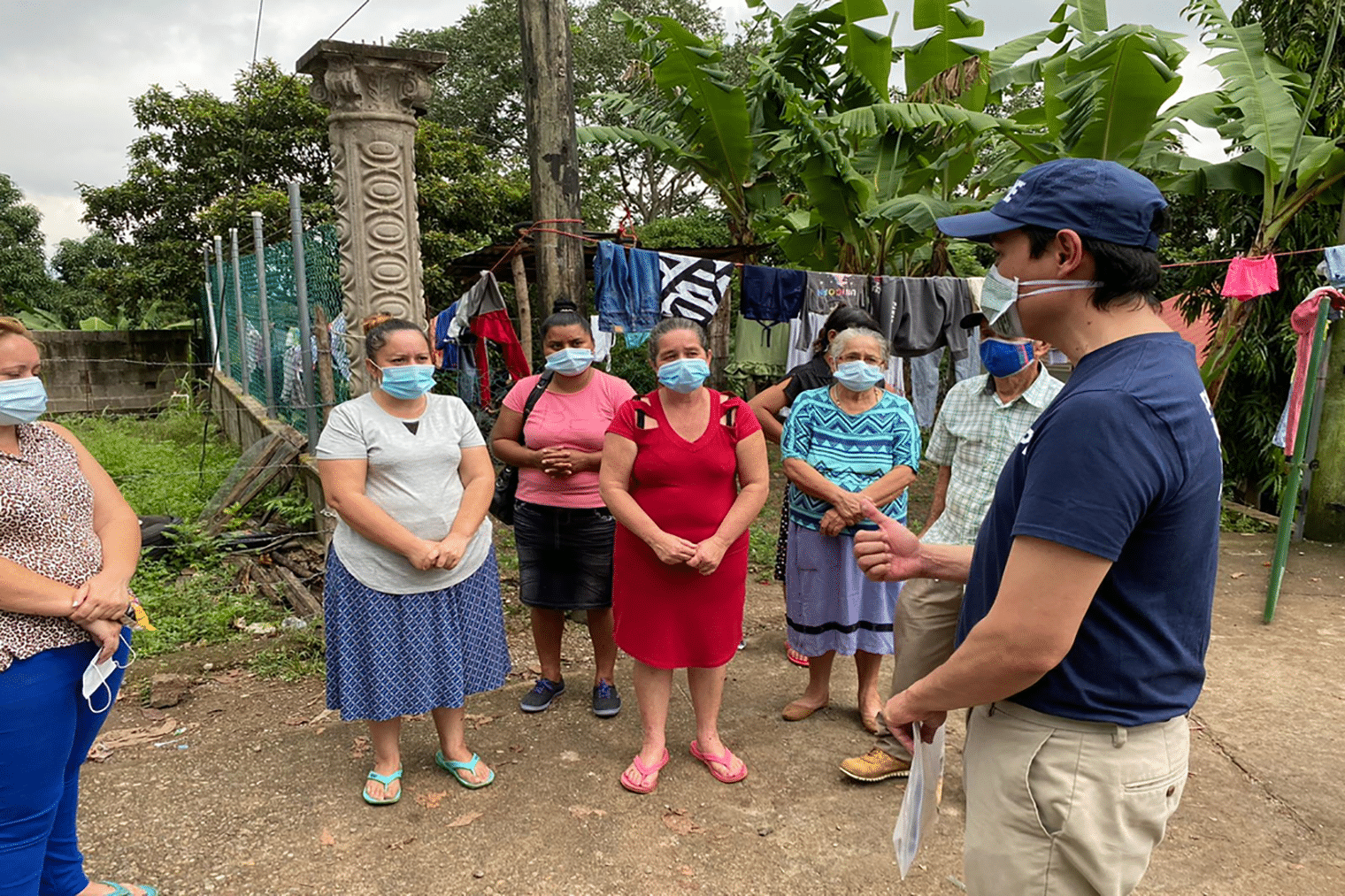 View Caption
View Caption
HurricaneIota_2020-11-26 at 9.31.22 PM
Project HOPE team members assess needs in Honduras following Hurricane Iota.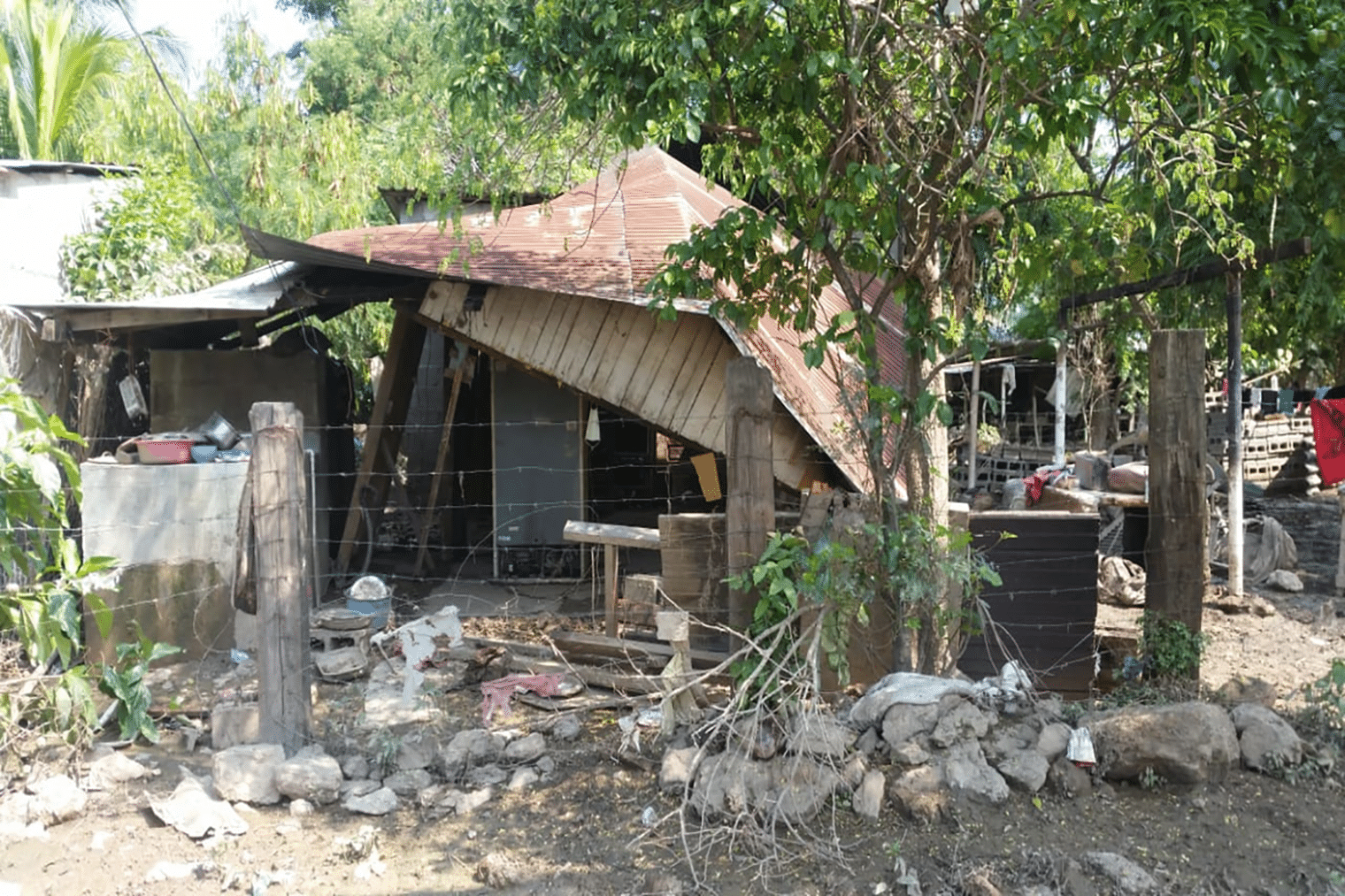 View Caption
View Caption
HurricaneIota_2020-11-18 at 12.57.20 PM (3)
Extensive damage to homes in villages surrounding Villanueva, Honduras following high winds and rain from Hurricanes Eta and Iota.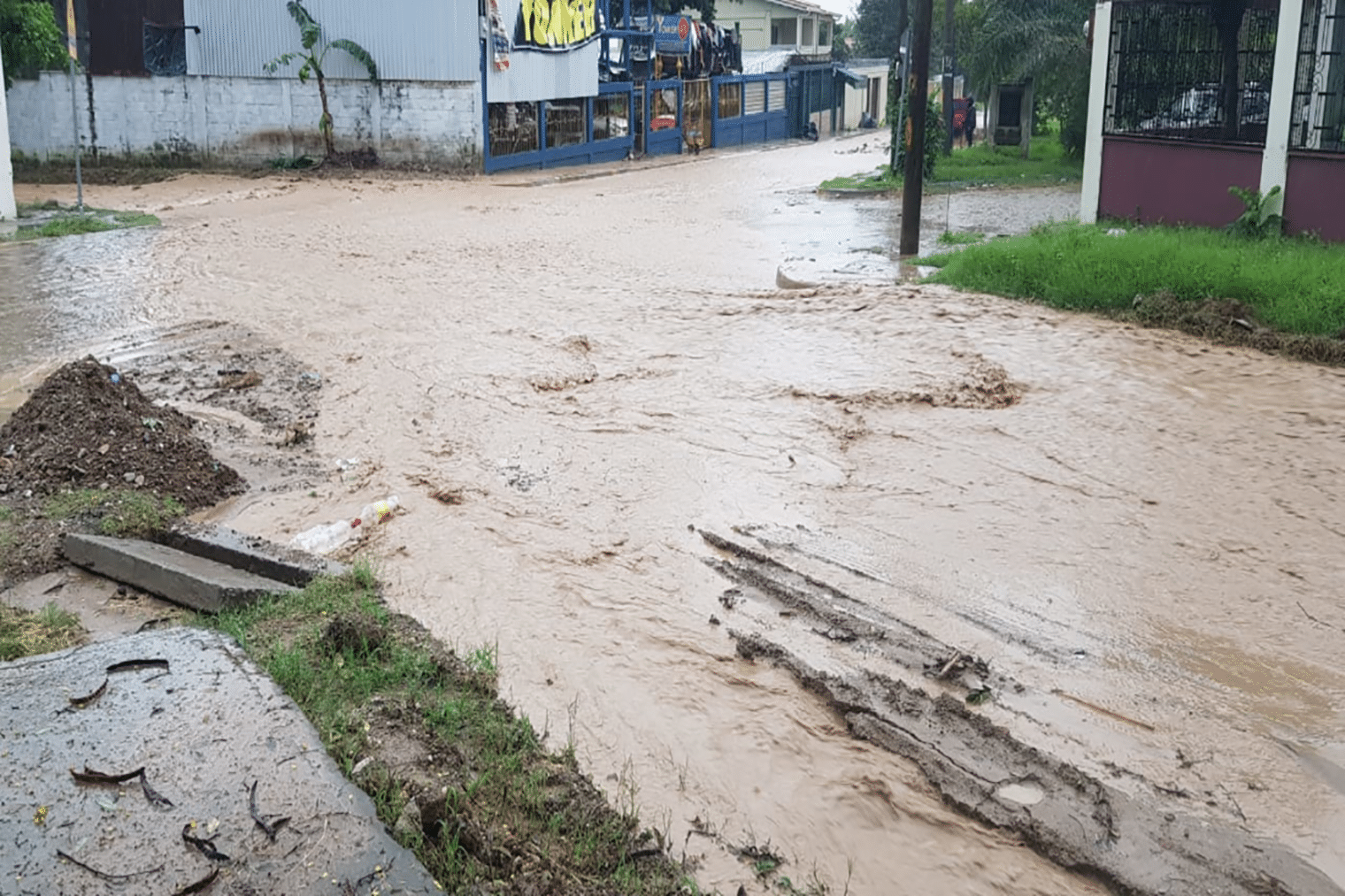 View Caption
View Caption
HurricaneIota_ 2020-11-17 at 6.03.11 PM
Extensive damage to homes in villages surrounding Villanueva, Honduras following high winds and rain from Hurricanes Eta and Iota.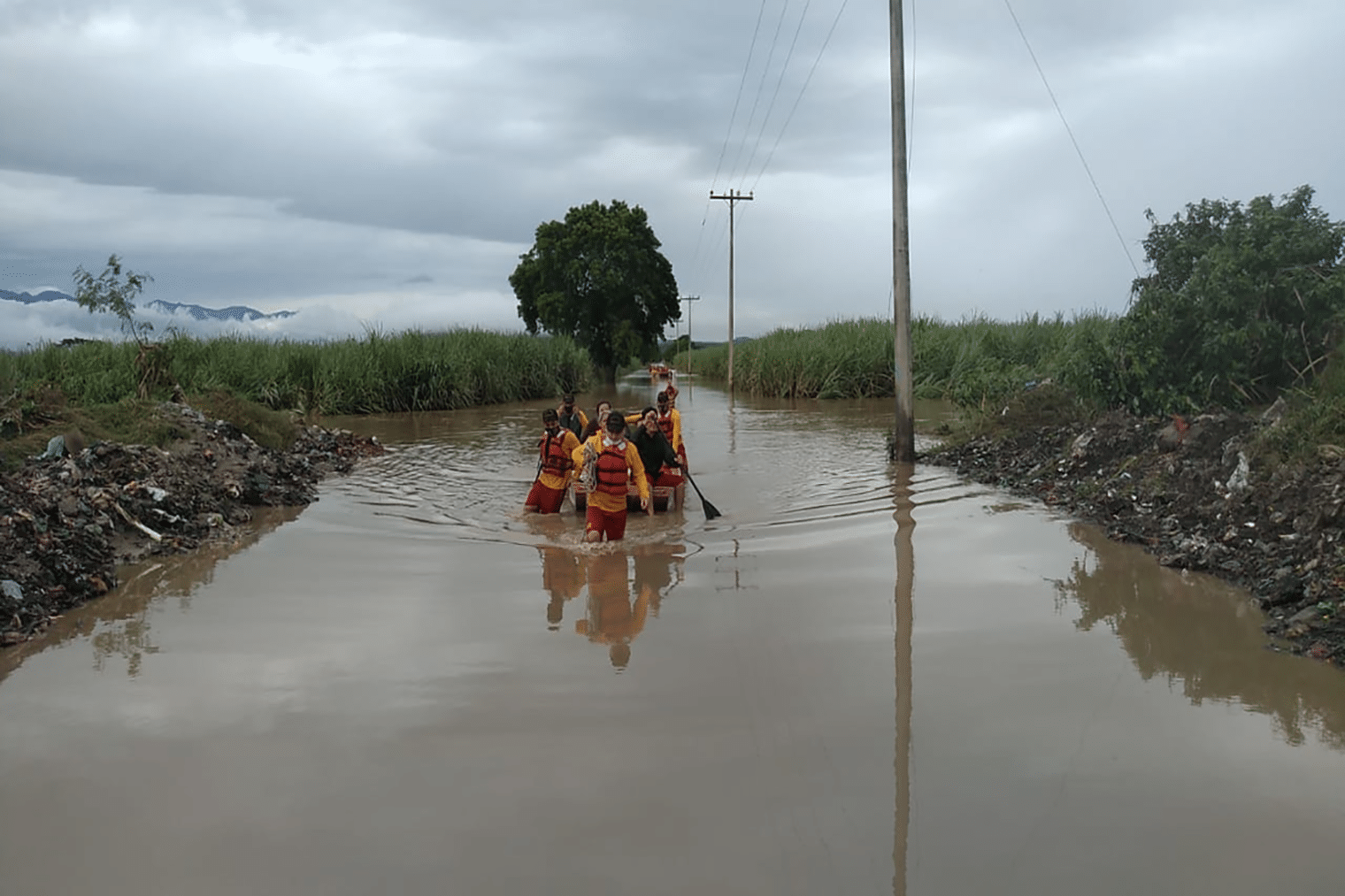 View Caption
View Caption
HurricaneEta_Villanueva_Honduras_-11-13 at 11.58.49 AM (3)
Extensive damage to homes in villages surrounding Villanueva, Honduras following high winds and rain from Hurricanes Eta and Iota.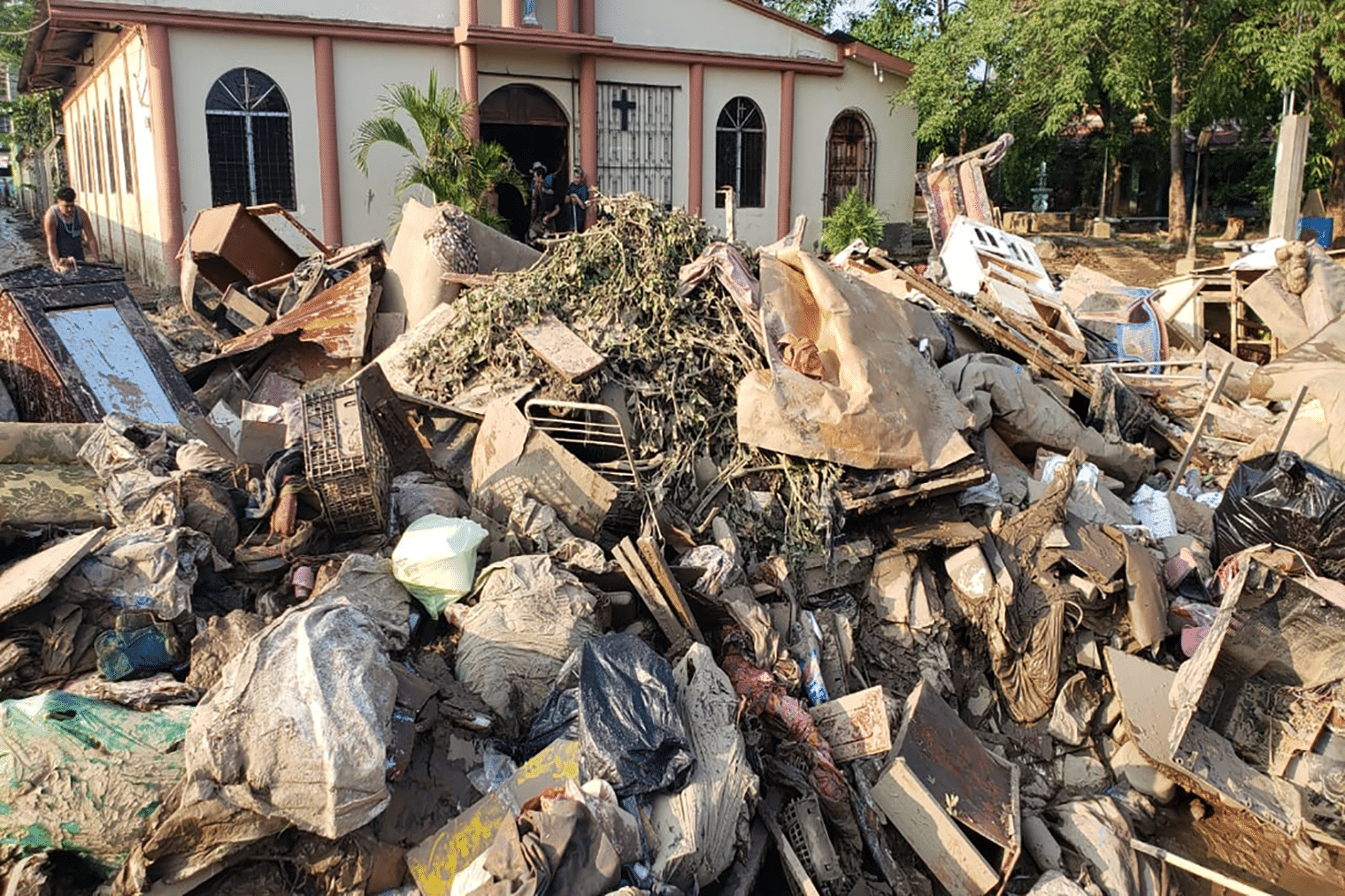 View Caption
View Caption
HurricaneEta_Villanueva_Honduras_-11-13 at 11.58.48 AM (5)
Extensive damage to homes in villages surrounding Villanueva, Honduras following high winds and rain from Hurricanes Eta and Iota.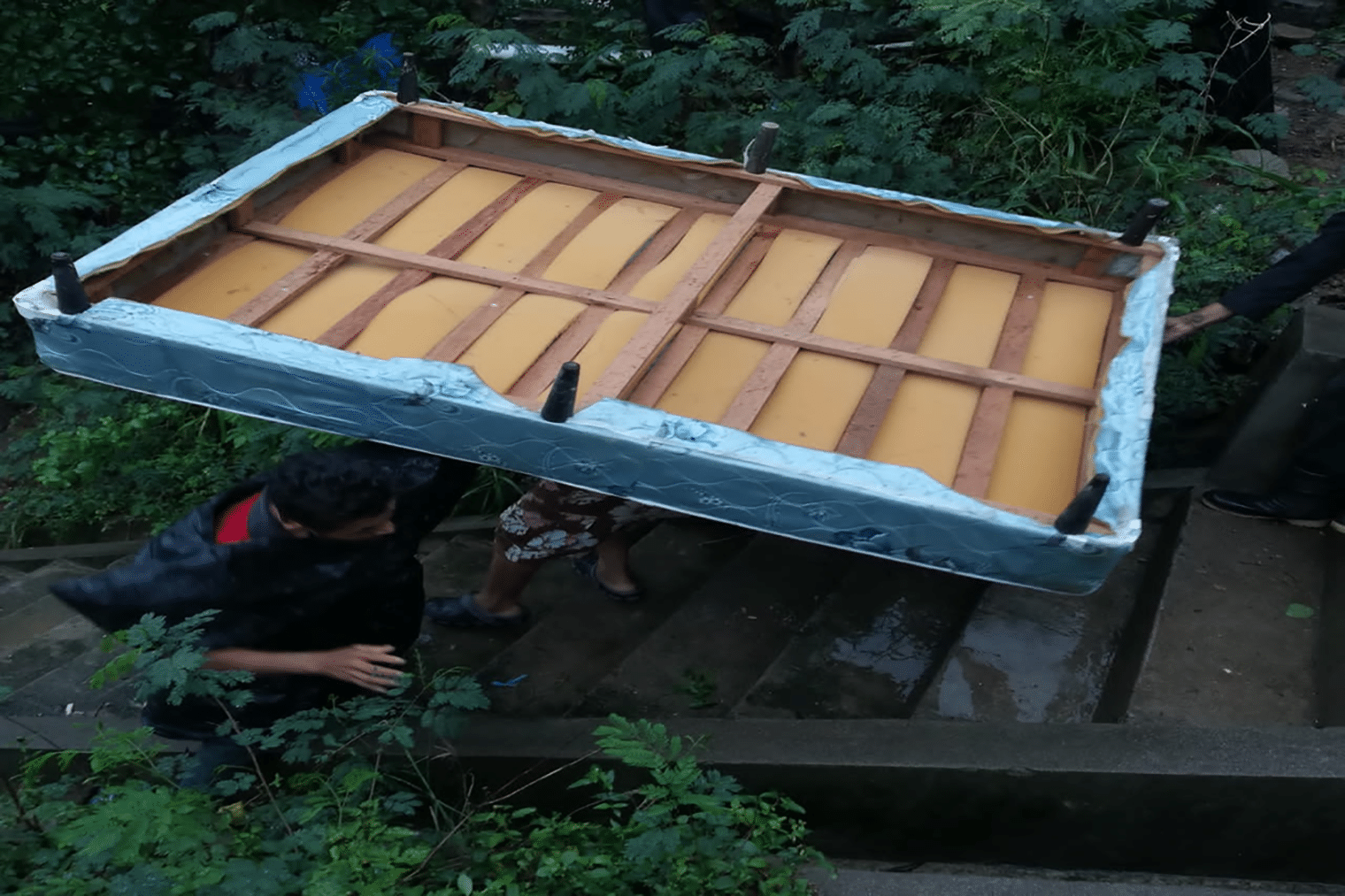 View Caption
View Caption
HurricaneEta_Villanueva_Honduras_-11-13 at 11.58.47 AM
Project HOPE assesses needs following Hurricane Iota in Honduras.

















